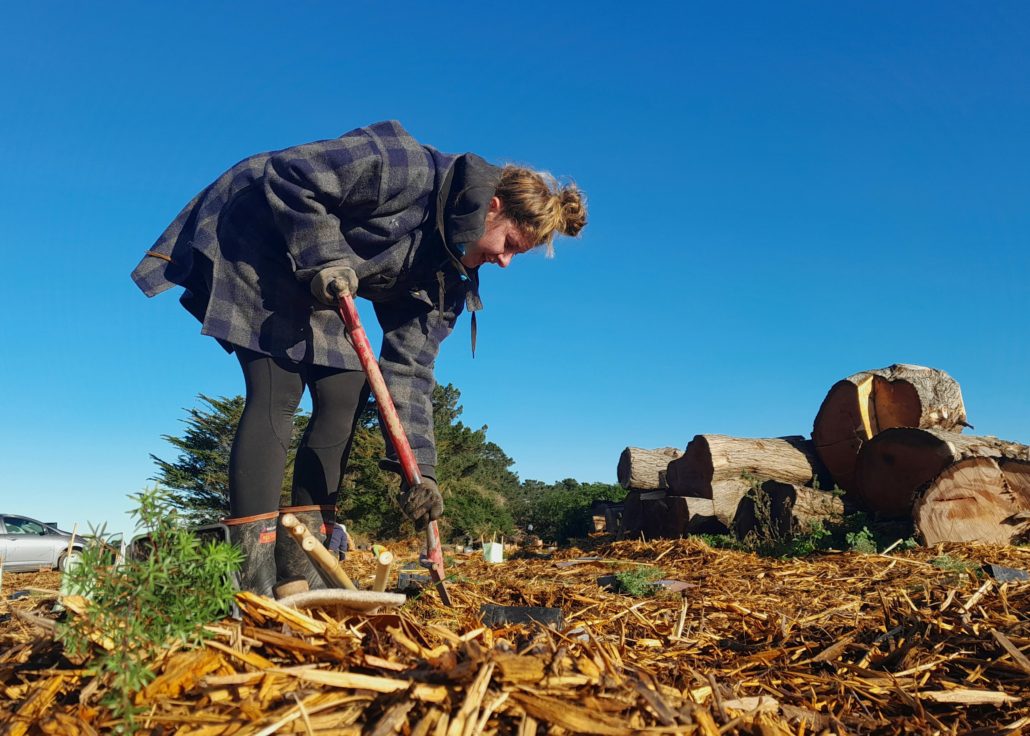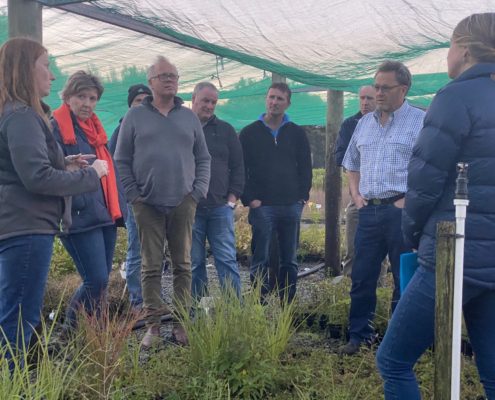Creating local rural employment, directly and indirectly, was a key objective of the Tinaku Project during a time when many had lost their jobs or were struggling after the pandemic. ESAI wanted to help get people into jobs and provide employment for the local community and support local businesses.
Overall, more than 30 people were employed on average a month over the three years directly and indirectly through the project thanks to the Jobs for Nature funding from the Ministry of Primary Industries.
Five staff members were directly involved in managing the project, which included administration, planning restoration projects, collecting data, organising workshops and events and a multitude of other tasks.

Brittany Smith carrying out restoration work with ESAI
The project also employed two full time restoration field staff who tackled weeds and planted native trees on farmers’ land.
Tom Hilston, who worked for the project from the outset and who carried out a lot of the restoration work, has since gone on to start up his own contracting business after gaining valuable skills and experience and an excellent reputation with local farmers.
In addition, the restoration project created indirect employment by engaging local contracting businesses to manage planting sites around the area. This work involved clearing sites of weeds, planting native species and then ongoing maintenance over three years to ensure a good survival rates.
The Tinaku Project also partnered with a local plant provider Wai Ora Nursery to source thousands of native plants for the riparian planting projects, enabling the nursery to employ an extra full-time staff member.
Local facilitators, tutors and specialists have been engaged for the workshops and events and a local café in Leeston supplied much of the catering.
The project also appointed an ecologist to carry out monthly water quality monitoring of waterways across the catchment.
On top of creating employment, the Tinaku Project also sponsored students at Ellesmere College in the Gateway programme, which gives young people the skills and knowledge to pursue a career in the rural sector.
All in all, during the three year time period, the Tinaku Project employed an average of 8.7 Full Time Equivalent staff each month directly or indirectly with over 1100 hours of work for local people.






